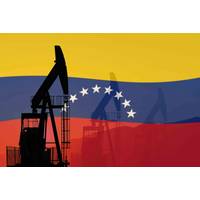Repsol Expected to Unload YPF Stake
Spanish oil company Repsol could raise up to US$1.5bn through the sale of its remaining 11.85% stake in Argentina's YPF as soon as May, say bankers.
The move would be one of the last steps in Repsol's exit from Argentina after having already agreed to receive a US$5bn bond payment from the federal government for the expropriation of its 51% stake in Repsol in 2012.
Whether Repsol opts for a quick block trade or a more public transaction, it is likely to wait until the release of earnings on May 9 to conduct the sale.
Bankers are valuing the deal at between US$1bn and US$1.5bn, and while mandates have yet to be awarded, they say possible candidates include Credit Suisse, Deutsche Bank and Citigroup.
Emails to Repsol's press office were not answered.
While Repsol may want to monetize its YPF holdings as soon as possible, some bankers think the trade will receive pushback from investors still wary about Argentina's government policies - despite the potential of the country's massive shale fields.
"I think it's still a very tough sell, even if there are buyers interested," said a senior ECM banker.
"I'd frankly be shocked if anything gets done quickly," the banker said.
"And even if you're selling YPF as a shale play, there are lot more stable shale plays in the US or other countries without the Argentina overhang."
That said, sentiment toward the South American nation has been improving. The government's recognition of higher inflation, a devaluation of the peso and renewed negotiations with Paris Club creditors are being viewed as steps toward a return to more market-friendly policies.
This has helped YPF tap the international bond markets several times and sparked a rally in the company's stock. Its ADRs were trading Thursday at around US$29.40, up from a one-year low of US$12.11 per share.
Argentina's Congress on Thursday approved the payment of US$5bn in bonds to Repsol for the 2012 nationalization of YPF, putting litigation risk behind it and potentially opening the door for more investment in the company's Vaca Muerta shale fields, according to Reuters.
Consensus is that the Spanish oil company will monetise those bonds sooner rather than later.
"They need the money to make investments, they are not in the business of holding Argentine debt, and if they sell at a lower price, the government has to give them more bonds, so they don't care," one portfolio manager said.
Under the agreement, Repsol receives a fixed package of bonds with a nominal value of US$5bn, comprising US$500m of Bonar 2017s, US$1.25bn of Discounts due 2033 and US$3.25bn of new Bonar 2024s.
The Spanish oil company is also entitled an additional US$1bn bond package, comprising US$400m of Boden 2015s, US$300m of Bonar 2017s and US$300m of the Bonar 2024s.
This can be activated if the market value of the initial US$5bn in bonds falls below US$4.67bn during a 90-day period, which is likely to start once Repsol receives the payment, according to Credit Suisse.
Repsol can monetise the package through a disposal of the bonds, but if proceeds exceed US$5bn, the agreement stipulates that the company must return any amount above that to the sovereign.
(Reporting by Joan Magee; Editing by Paul Kilby and Marc Carnegie)



